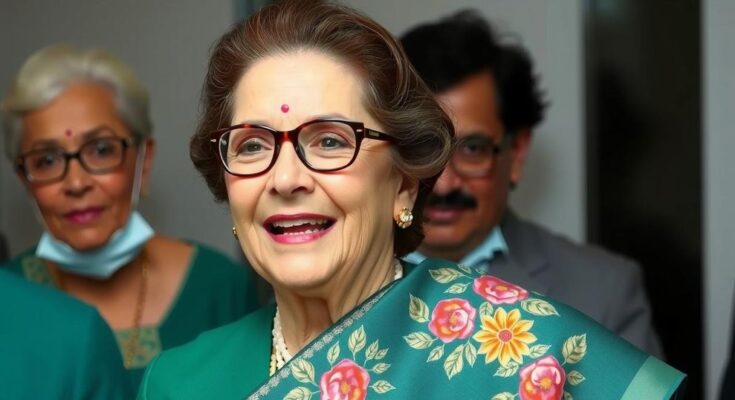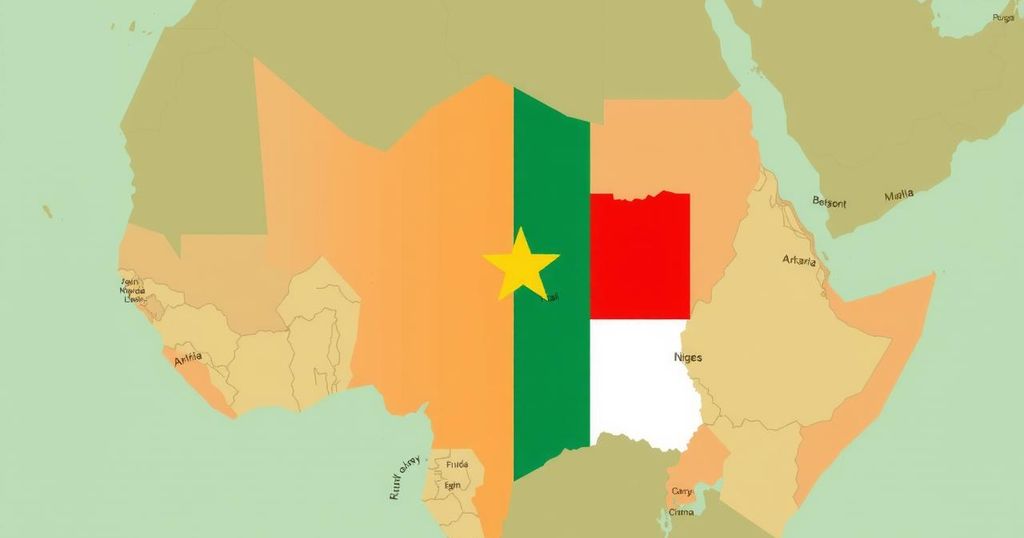Khaleda Zia, the former Prime Minister of Bangladesh, has left for London for medical treatment, facing serious health issues. Her departure follows significant political upheaval after the ousting of her rival, Sheikh Hasina. Zia’s exit creates a political vacuum amid negotiations for upcoming elections under an interim government led by Muhammad Yunus.
Khaleda Zia, the former Prime Minister of Bangladesh, departed for London to receive medical treatment on account of serious health issues including liver cirrhosis, cardiac disease, and kidney problems. her exit comes amid a backdrop of political instability following her rival Sheikh Hasina’s removal from power during a mass uprising in August 2023. Zia, who had previously been imprisoned for corruption charges—a point her supporters argue was politically motivated—was recently released on bail. A special air ambulance, arranged by the Emir of Qatar, transported her to London where her son, Tarique Rahman, has been in exile since 2007. The dynamic between Zia and Hasina has been central to Bangladesh’s political landscape, particularly considering their familial ties to the nation’s historical leadership.
During her departure, hundreds of supporters lined the streets to show their support, significantly impeding travel to the airport. Zia’s exit leaves a political vacuum that rival factions, including emerging student-led political groups, are likely to attempt to fill following the weakening of traditional power structures. Muhammad Yunus, who now leads the interim government, plans elections and seeks necessary reforms before proceeding; Zia’s Bangladesh Nationalist Party continues to negotiate regarding the electoral timeline and agenda.
The political and historical context of Bangladesh reveals the longstanding rivalry and power struggles between the families of Khaleda Zia and Sheikh Hasina. Zia’s husband, a former president, was killed during a military coup, further entrenching the political tension that exists today. Meanwhile, Hasina’s recent exile complicates the political landscape, as the country anticipates an election ahead while facing the rise of Islamist political factions as alternatives to the traditional governance structures.
The political landscape of Bangladesh has been significantly influenced by the tumultuous relationship between Khaleda Zia and Sheikh Hasina, both of whom are powerful political figures and former prime ministers. Zia’s recent medical departure to London comes on the heels of her release from a lengthy imprisonment related to corruption charges, which her allies claim were politically fabricated. The situation has intensified following Hasina’s ousting, leading to uncertainties regarding the forthcoming election and the political future of Bangladesh. The current interim government, led by Muhammad Yunus, faces challenges including reforming the political system and managing rising tensions among varying political factions.
Khaleda Zia’s departure from Bangladesh marks a pivotal moment in the nation’s evolving political narrative. As she seeks medical assistance abroad, the political vacuum may catalyze new factions vying for power, notably in the absence of Sheikh Hasina. As the interim government approaches upcoming elections, the dynamics within Bangladesh’s historically charged political landscape will likely shift, highlighting the ongoing struggles for dominance between traditional parties and emerging groups.
Original Source: m.economictimes.com




